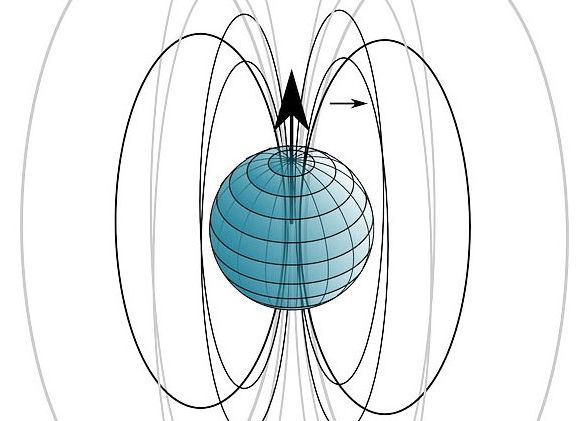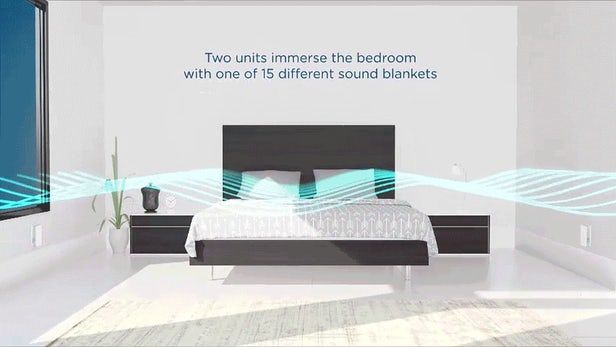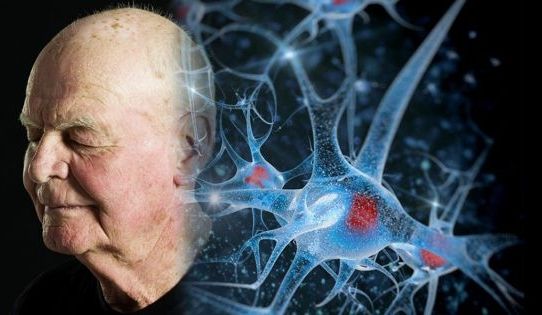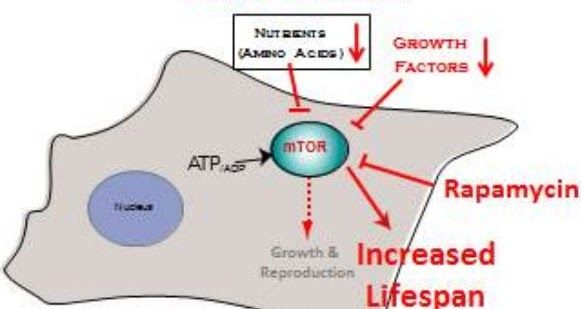Archive for the ‘neuroscience’ category: Page 910
Oct 10, 2016
Nightingale Sleep encourages slumber under a white noise “sound blanket”
Posted by Shane Hinshaw in categories: internet, media & arts, neuroscience
Pitch black darkness and silence may help some people drift off at night, but others fall asleep better with music, TV or a fan on in the room. For the latter group, a white noise machine or app can be a handy bedside companion, but Cambridge Sound Management claims it has a better option with the Nightingale, a new Internet of Things-enabled system that uses two speakers in a room to create a “sound blanket” that is designed to blend into the background and block disruptive sounds.
Devices like the Snooz are designed to sit by the bed while they give off their comforting soundscapes, but according to CSM, when sound is coming from a single source a listener’s brain can pinpoint it, making it less effective at helping people switch off and drift off. To counter this apparent shortcoming, the Nightingale system comes in pairs, and placing them in different parts of the room creates a more uniform blanket of white noise that the brain can’t precisely locate.
Each unit contains two speakers, and when plugged into an outlet – actually two outlets –, outputs ambience from a selection of 15 different types of soundscapes. The company says the layout of the room is taken into account, and the devices will work even when plugged in behind furniture. Electrical outlet real estate is valuable, so the front of each unit contains two more outlets, to replace the ones it’s hogging.
Oct 10, 2016
Ray Kurzweil — How are Brains Conscious?
Posted by Shailesh Prasad in categories: neuroscience, Ray Kurzweil
Oct 9, 2016
“It’s a Powerful Time to Reshape Healthcare Across the Planet”
Posted by Elmar Arunov in categories: biotech/medical, neuroscience, singularity
We are living in a world that is global and exponential. Technology is taking things that used to be scarce and making them abundant—and these forces are reshaping the fields of medicine and healthcare in completely novel ways.
Opening this year’s Exponential Medicine conference in San Diego, Daniel Kraft, the curator of the conference, and faculty chair of Medicine and Neuroscience at Singularity University, took the audience on a whirlwind tour of the latest developments in healthcare and medicine.
Continue reading “‘It’s a Powerful Time to Reshape Healthcare Across the Planet’” »
Oct 9, 2016
No More Secrets: Scientist Says the Earth’s Magnetic Field will Enable Telepathy on a Global Scale
Posted by Shailesh Prasad in categories: futurism, neuroscience

“Suppose you had access to every person’s brain,” asks Dr. Michael Persinger, “and they had access to yours?” Dr. Persinger, cognitive neuroscientist and professor at Laurentian University in Ontario, is convinced that this is not only possible but is immanent in the coming future. Why? How? In short, his pioneering research shows a strong correlation between the Earth’s magnetic field and the human brain.
If Dr. Persinger is correct, the Earth’s magnetic field is constantly interfacing with our own brains in such a manner as to influence our thoughts, emotions and behaviors. This interface, however, seems to have another effect: Dr. Persinger’s research seems to indicate that the geomagnetic field can store and transmit all the information of every human brain in history. And if we can tap into this informational reservoir, there will be no more secrets. In such a scenario, for example, we can know the true intentions of large corporations, regardless of what they may say through the media. We’d be able to feel and experience the pain of starving people in Africa. This is huge! Pay attention and enjoy!
Oct 7, 2016
Why Our Brain Cells Die: A Breakthrough in Fighting Neurodegenerative Diseases
Posted by Elmar Arunov in categories: biotech/medical, neuroscience
In Brief.
- Every year, more than 795,000 people in the United States have a stroke.
- A team of scientists has discovered a common mechanism chain leading to brain cell death which involves proteins eating away at a cell’s DNA.
A team of scientists has discovered that, despite having varied causes and symptoms, most brain diseases all share a common mechanism chain leading to brain cell death. The process, aptly named parthanatos after an enzyme called PARP and the Greek god of death, involves proteins eating away at the cell’s DNA.
Oct 7, 2016
Side Effects of Antiaging drug Rapamycin can be managed with lower doses and appears to improve the immune system, restore vitality and delay heart disease and dementia
Posted by Steve Hill in categories: biotech/medical, life extension, neuroscience
Rapamycin could lead to the development of drugs to delay some aspects of aging in particular the immune systems decline with age.
Nearly a decade of research showing that Rapamycin makes mice live up to 60% longer, scientists are trying it out as an anti-aging drug in dogs and humans.
Researchers at the University of Washington’s Dog Aging Project gave rapamycin to 16 dogs and imaged their hearts.
Oct 6, 2016
Alien Implants Now Science Fact as DARPA Invades the Human Brain
Posted by Karen Hurst in categories: food, neuroscience, science, sustainability
Imagine a cow being branded on a farm. Now imagine your family dog being micro-chipped so he can be returned to his owners if lost. The next logical step from these commonly accepted practices include the tagging and observation of you. The only question is who is doing the tagging?
Oct 6, 2016
Brain Cells That Cool the Body
Posted by Karen Hurst in categories: biotech/medical, neuroscience
Summary: Researchers have identified a set of heat sensing neurons that prompt both nervous system and behavioral changes that help cool the body.
Source: NIH.
The body’s temperature is closely regulated. We sense temperature changes in the environment through specialized nerve cells in the outer layers of the skin. If we are too hot or too cold, our nervous system activates responses to help change our temperature. We can sweat to cool down or shiver to generate heat. Our blood vessels can constrict to conserve heat or expand to release heat. To avoid discomfort, we sometimes seek out different environments―choosing to go into an air conditioned room or sit by a heater.


















